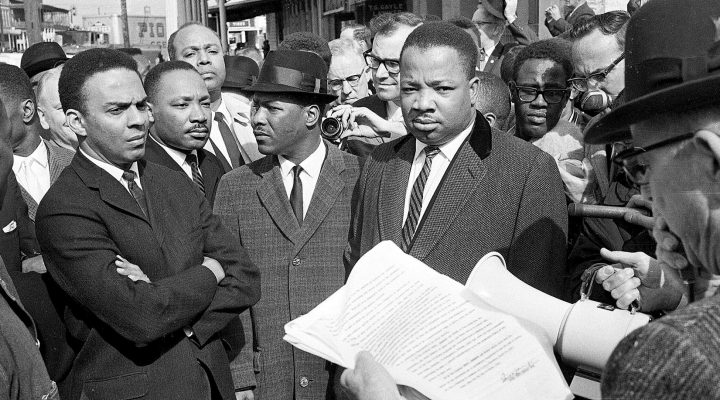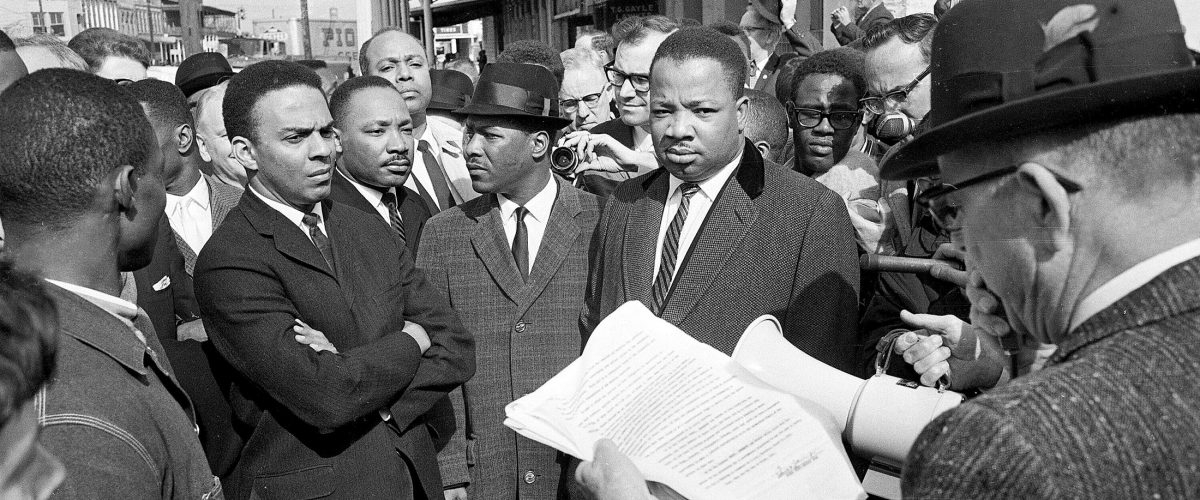Any effort to suppress voter participation is a direct outgrowth of Christian nationalism, a panel of experts said during a Sept. 24 webinar hosted by Baptist Joint Committee for Religious Liberty and its Christians Against Christian Nationalism campaign.
More than ever before, supporters of religious freedom and the separation of church and state must work together to protect democracy and all Americans’ right to vote because it impacts everyone, said Sabrina Dent, director of the BJC Center for Faith, Justice and Reconciliation.
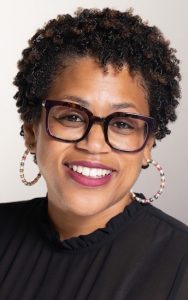
Sabrina Dent
“Religion should never be used as a weapon to discriminate against any group of individuals or individual because of how they identify, who they love, what they believe or don’t believe, or how they make decisions about their personal health care options,” she said. “Nor should religious ideologies be used to challenge a person’s ability to fully participate in our democracy by restricting voting rights.”
BJC defines Christian nationalism as a political ideology and cultural framework that seeks to conflate American and Christian identities and distorts both in the process, said Jaziah Masters, research fellow with the center and moderator of “Combating Christian Nationalism and Voter Suppression: A Fight to Save Democracy.”
The extremist movement “holds that to be a true American, one must be a Christian, but that Christian identity is tied to and provides cover for privilege, white supremacy and racial subjugation,” he said.
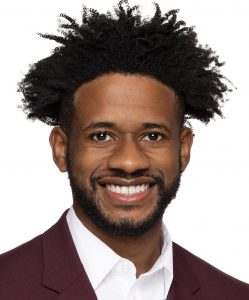
Jaziah Masters
And it is the motivation for nationwide efforts to discourage or prevent millions of Americans from voting for candidates unsupported by Christian nationalists, Masters added. “But the public square is made up of all of us, and voting is a key way we engage the public square. It allows us to elect representatives of many interests and to hold our elected officials accountable.”
To set the stage for the panel discussion, webinar attendees screened Suppressed and Sabotaged: The Fight to Vote, a short film on the multi-state campaign to discourage or defeat people of color from casting ballots or having their ballots fairly counted.
Tactics include closing polling sites in marginalized communities, criminalizing voter registration efforts, limiting absentee voting, reducing the number of voter drop boxes, requiring voters to prove citizenship at the polls and disqualifying those whose names don’t perfectly match on drivers’ licenses and voter registration cards, the film explains.
Other approaches include closing polling places on college campuses, causing long lines by providing fewer voting machines in Black and brown communities and attempting to sabotage elections with threats of violence and other forms of intimidation on election day.
Arizona purged 92,000 voters from its rolls in 2023, while Georgia sent purge notices to 380,000 voters and disqualified another 53,000 with exact-match ID requirements, the film reports. These and other policies have spread to 36 other states, including Florida and Texas.
The “voter suppression tidal wave” has been inspired by Donald Trump’s Big Lie that the 2020 presidential election was stolen, the film adds.

Nomi Joyrich
And it’s why so much is riding on the outcome of the November election, said panelist Nomi Joyrich, Michigan director for Jews for A Secular Democracy.
“It is not overstating it at all to say that democracy itself is at stake in this election, and certainly the separation of religion and government is at stake in this election. And let’s be clear, white Christian nationalists are so well organized from the top to the bottom when you look at the ticket,” she said.
Christian nationalists have been working for years to ensure the 2024 election results in a win for extreme-right candidates and causes, said Rachel Carter, Black Voters on the Rise field coordinator for the NAACP Legal Defense Fund.
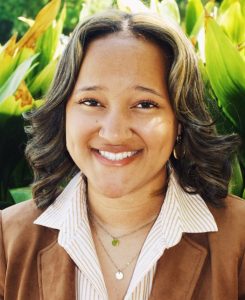
Rachel Carter
“If you’re in Texas, for example, over 2 million people were placed on the inactive (voter) list, and I’ve heard time and time again they are putting in the effort to restrict the vote as much as possible to get a certain outcome.”
Conservatives have taken voter suppression so far that opposition to it generates animosity from Christian nationalists, she said. “Because defending democracy has become a political issue, it’s now a partisan issue for us to say we support everyone’s right to vote. It now automatically means you’re voting for a certain party when everyone should have free and equal access to the right to vote.”
Also hanging in the balance in November are sensible climate change policies, the ability of women to manage reproductive health, health care access, parity in education and gun safety, said Monica Spencer, Georgia organizer and faith coordinator with VoteRiders.
Spencer said she and others with the voter-rights group have been trying to alert people of color that they may have been purged from voter rolls or may face challenges at the polls because of their identification. It’s been exhausting helping thousands of Georgians re-register or restore their right to vote, she added.
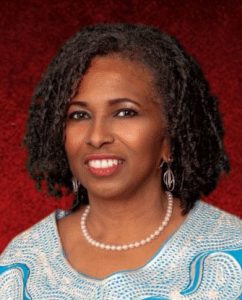
Monica Spencer
Georgia also has made it illegal to hand water or snacks to voters waiting in long lines, made it harder for homeless people to vote and shortened the deadline to request mail-in ballots.
“I am in disbelief and disgusted by it, and I take it very personal,” Spencer said. “This is an attack not only on my community, not only on people that I work with, but it’s an attack on me personally. Voting should not be this difficult and laborious.”
Taking action now is the best way to channel those emotions, she advised. “I try to channel that anger by reaching out to encourage people to get involved in civic engagement, to get involved in educating each other about what it means to be a voter or what disenfranchisement and voter suppression look like.”
Carter said she often is frustrated “that we are still fighting this fight” decades after the Civil Rights Movement: “A lot of the restrictions we see are always down racial lines, and even down religion lines. A lot of the times when they try to cut early voting on Sundays, you know that’s not necessarily targeted at the white Christians but is directly targeted to the Black churches who do Souls to the Polls.”
Citizens frustrated by the situation can work to ensure people in their circles and communities are registered to vote, have rides to the polls, feel safe casting ballots or they can volunteer in their states for voter-rights groups like the Election Protection coalition, Carter said. “We need volunteers at the polls to help voters, for poll monitoring and keeping our eyes and ears on all the sites.”
Volunteering with voter phone banks can be done at home and is another way to resist Christian nationalist voter suppression efforts, Joyrich said. “We are calling people who rarely vote and we are helping identify and overcome obstacles to voting, like making sure they know where they’re polling location [is], how to get an absentee ballot and whether they are registered at the correct address.”
And above all else, don’t lose hope, Spencer said. “The repeated onslaught on voting rights in Georgia has been tiring, discouraging and even debilitating. So, I constantly find myself trying to encourage voters and potential voters to remain steadfast and to educate themselves about how the policy changes impact them and their communities.”
Related articles:
Trump has led white evangelicals and Republicans to doubt election results
Everything you need to know about absentee voting | Analysis by Kristen Thomason
Elect me, and you’ll never have to vote again, Trump promises evangelicals

